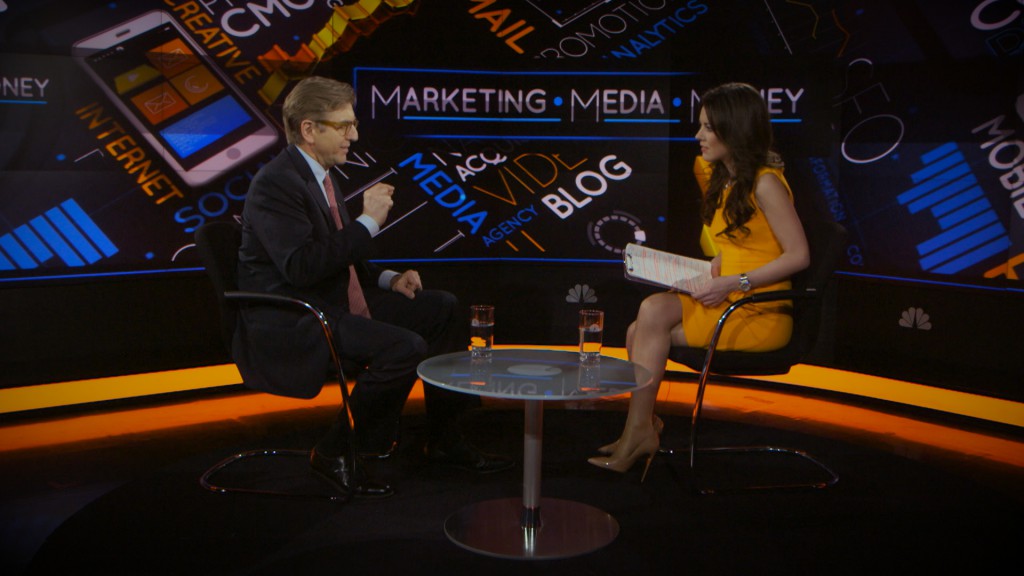CNBC last night (5 May) broadcast the first episode of its new show, ‘Marketing. Media. Money’, featuring an in-depth interview with Unilever’s top global marketer Keith Weed.

The show, which premiered in Europe yesterday and in Asia today (6 May), aims to help viewers navigate the $600bn global ad industry through the eyes of the senior marketers.
The series also features regular contributions from Charlie Crowe, the chairman of C Squared, which owns M&M Global, while production is overseen by CNBC executive producer Martin Conroy.
Here are a selection of Weed’s comments on major industry trends, from data to ad blocking and mobile marketing. Click here to read the full transcript.
Keith Weed on… data
“We have data ourselves and, of course, we also buy data from the likes of Google and Facebook, as you would imagine. But we’re also building our own. If you just look on our care lines, people answering the phones – so I’m not talking about writing letters or being on social media, just answering the phone – we have over 10 million calls a year of talking directly to people.
“Taking that sort of data and then putting on top of it the Facebook data and also then what we get from cookies starts creating much more vivid pictures of people, and, of course, this also enables us to do programmatic buying.”
Keith Weed on… ad blocking
“It’s a big challenge for the industry because, at the end of the day, all media, the free media, is paid for by advertising. And, of course, if that advertising stream goes elsewhere, maybe into sponsorship, then the quality of that content will go down. Less funds, less quality content.
“So it is a challenge for the industry. I think this is a challenge actually back to the brand builders, and the advertisers, and the advertising agencies. Because why do people block ads? They block ads because they’re irritating in some form or other. So we’ve got to find better ways of making great content that really engages people.”
“I can show you some fantastic creative ads on the TV and cinema, and then you go down to mobile we really haven’t cracked it”
Keith Weed on… mobile
“A lot of advertising agencies, media companies, brand advertisers, like ourselves, talk a lot about mobile. Everyone talks about mobile. There are more mobiles on the planet than people, there are two billion smartphones, and the next billion people who come online will be on mobile. I can give you mobile stats until you’re red in the face.
“However, what we’re talking about mobile and what we’re doing on mobile is very different. I can show you some fantastic creative ads on the TV and cinema, and then you go down to mobile we really haven’t cracked it.”
Keith Weed on… e-commerce
“E-commerce is a big part of what we do already, and so you won’t be surprised that we’re big on Amazon etcetera. It’s moving into consumer goods right now, but I would absolutely push back and say we’re very much up and on the front foot of e-commerce and where we are in all our categories.
“There’s a big shift going on but I think what you don’t want, you either want to be very small right now and niche or you want to be very big with lots of resources, learnings and capabilities.”
Keith Weed on… the Internet of Things
“You can see very quickly how the Internet of Things could give real opportunities to marketers to again in a utility way not in a nuisance way but in a utility way to help people simplify their lives. Weren’t we promised that technology was going to simplify our lives? But technology is making it more complex. In this confusing world, brands are going to come in and help simplify again, and it’s a huge opportunity.
“The Internet of Things at one stage is going to give us a lot more data and confusion but also I think for brands, is going to help brands get much better connection and relevance in the modern world.”







